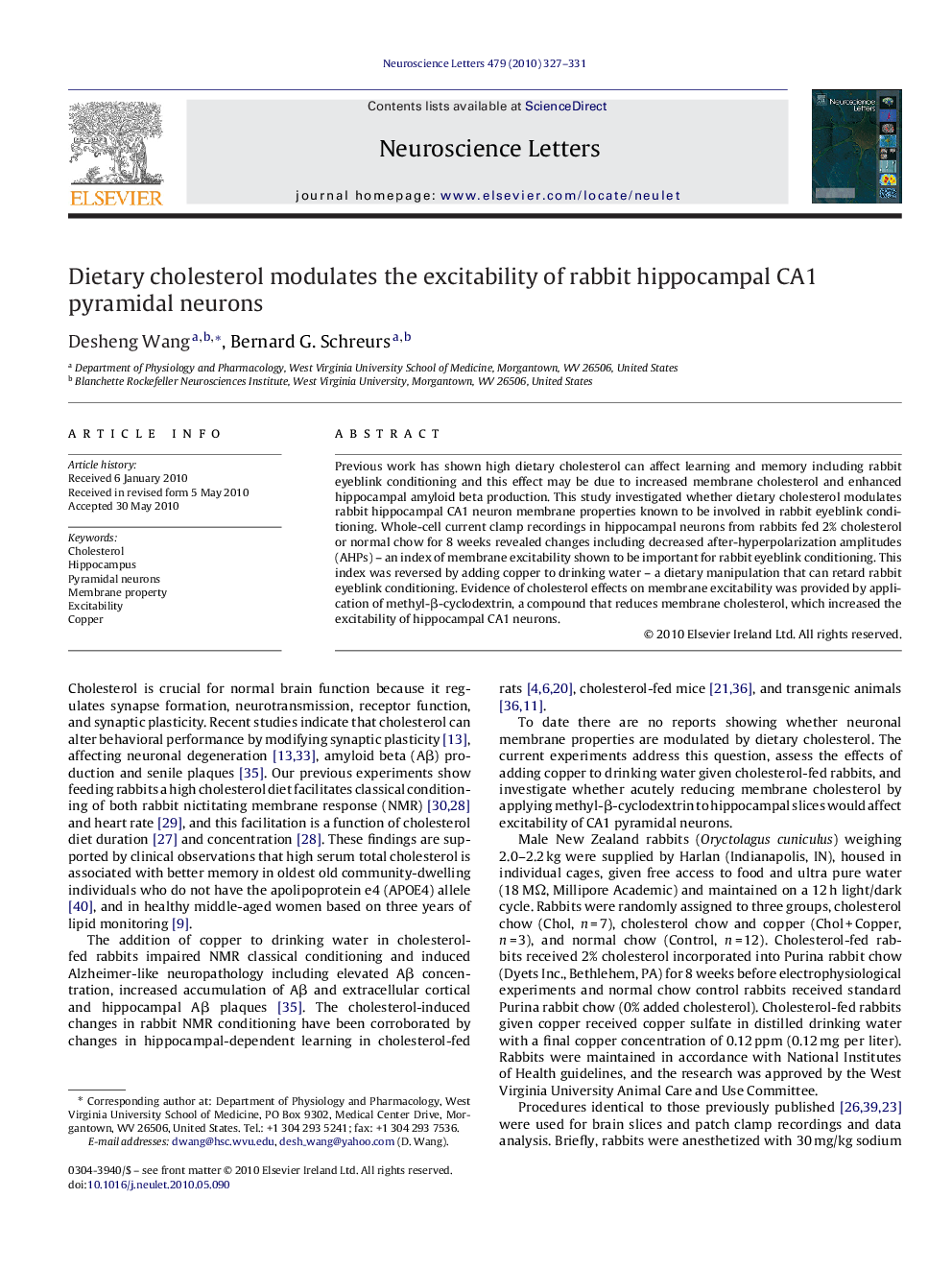| Article ID | Journal | Published Year | Pages | File Type |
|---|---|---|---|---|
| 4346193 | Neuroscience Letters | 2010 | 5 Pages |
Previous work has shown high dietary cholesterol can affect learning and memory including rabbit eyeblink conditioning and this effect may be due to increased membrane cholesterol and enhanced hippocampal amyloid beta production. This study investigated whether dietary cholesterol modulates rabbit hippocampal CA1 neuron membrane properties known to be involved in rabbit eyeblink conditioning. Whole-cell current clamp recordings in hippocampal neurons from rabbits fed 2% cholesterol or normal chow for 8 weeks revealed changes including decreased after-hyperpolarization amplitudes (AHPs) – an index of membrane excitability shown to be important for rabbit eyeblink conditioning. This index was reversed by adding copper to drinking water – a dietary manipulation that can retard rabbit eyeblink conditioning. Evidence of cholesterol effects on membrane excitability was provided by application of methyl-β-cyclodextrin, a compound that reduces membrane cholesterol, which increased the excitability of hippocampal CA1 neurons.
